 W
WAdam Franz Prince of Schwarzenberg, 3rd Prince of Schwarzenberg, was a Bohemian nobleman from the Schwarzenberg family and Austrian Obersthofmarschall.
 W
WBahram V, also known as Bahram Gor was the Sasanian King of Kings (shahanshah) from 420 to 438.
 W
WBasil I, called the Macedonian, was a Byzantine Emperor who reigned from 867 to 886. Born a simple peasant in the theme of Macedonia, he rose in the Imperial court. He entered into the service of Theophilitzes, a relative of Emperor Michael III, and was given a fortune by the wealthy Danielis. He gained the favour of Michael III, whose mistress he married on the emperor's orders, and was proclaimed co-emperor in 866. He ordered the assassination of Michael the next year. Despite his humble origins, he showed great ability in running the affairs of state. He was the founder of the Macedonian dynasty. He was succeeded upon his death by his son Leo VI.
 W
WOn 23 January 2020, a fire was started in the Agrícola del Lago reed bed in Cagua, Aragua state, Venezuela. Eleven people were confirmed to have died as a result of the fire, all but two being minors.
 W
WCharles of France, Duke of Berry, was a grandson of Louis XIV of France. Although he was only a grandson of Louis XIV, Berry held the rank of fils de France, rather than petit-fils de France, as the son of the Dauphin, heir apparent to the throne. The Duke of Berry was for seven years heir presumptive to the throne of Spain (1700–1707), until his brother Philip V fathered a son in 1707.
 W
WCharles Compton William Cavendish, 3rd Baron Chesham, styled The Honourable Charles Cavendish between 1863 and 1882, was a British soldier, courtier and Conservative politician. He served as the last Master of the Buckhounds under Lord Salisbury from 1900 to 1901.
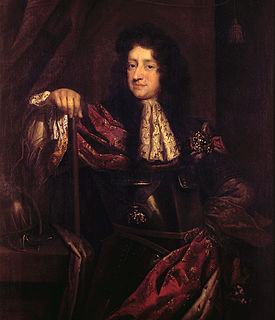 W
WChristian V was king of Denmark and Norway from 1670 until his death in 1699.
 W
WJosé Luis Cuciuffo was an Argentine footballer, defender in the 1986 FIFA World Cup-winning Argentine national team.
 W
WDemetrius was the second son of King Alexander I of Georgia by his first wife Dulandukht Orbeliani. He was co-king with his father from 1433 to 1442 and with his brother Vakhtang IV from 1442 to 1446. On Vakhtang's death, Demetrius became a de jure king of Georgia but his accession to the throne was precluded by his younger brother George VIII.
 W
WRudolf Diels was a German civil servant and head of the Gestapo in 1933–34. He obtained the rank of SS-Oberführer and was a protégé of Hermann Göring.
 W
WAnatoly Anatolyevich Durov (1887–1928) was a renowned 20th century animal trainer. He was a member of the Durov family of performers who raised the quality and prestige of the Russian circus.
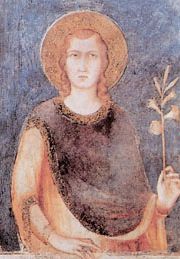 W
WSaint Emeric also Henricus, Emery, Emerick, Emmerich, Emericus or Americus was the son of King St. Stephen I of Hungary and Giselle of Bavaria.
 W
WArthur Brian Deane Faulkner, Baron Faulkner of Downpatrick,, was the sixth and last Prime Minister of Northern Ireland, from March 1971 until his resignation in March 1972. He was also the chief executive of the short-lived Northern Ireland Executive during the first half of 1974.
 W
WFerdinand Maximilian of Baden-Baden, Hereditary Prince of Baden-Baden was the father of the famous general Louis William, Margrave of Baden-Baden.
 W
WSteven John Fromholz was an American entertainer, singer-songwriter who was selected as the Poet Laureate of Texas for 2007.
 W
WJames Harrod was a pioneer, soldier, and hunter who helped explore and settle the area west of the Allegheny Mountains. Little is known about Harrod's early life, including the exact date of his birth. He was possibly underage when he served in the French and Indian War, and later participated in Lord Dunmore's War. He also rose to the rank of colonel in the local militia.
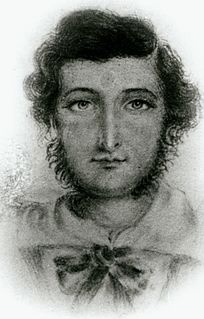 W
WJohn Ainsworth Horrocks was an English pastoralist and explorer who was one of the first European settlers in the Clare Valley of South Australia where, in 1840, he established the village of Penwortham.
 W
WPaul Oscar Adolph Husting was an American lawyer from Mayville, Wisconsin who served as a Democratic Party member of the United States Senate from 1915 to 1917.
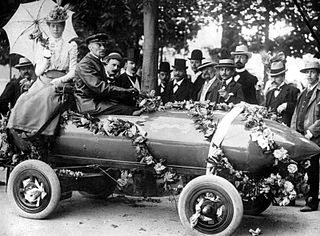 W
WCamille Jenatzy was a Belgian race car driver. He is known for breaking the land speed record three times and being the first man to break the 100 km/h barrier. He was nicknamed Le Diable Rouge after the colour of his beard.
 W
WJohn II Komnenos or Comnenus was Byzantine emperor from 1118 to 1143. Also known as "John the Beautiful" or "John the Good" (Kaloïōannēs), he was the eldest son of Emperor Alexios I Komnenos and Irene Doukaina and the second emperor to rule during the Komnenian restoration of the Byzantine Empire. John was a pious and dedicated monarch who was determined to undo the damage his empire had suffered following the Battle of Manzikert, half a century earlier.
 W
WYevhen Petrovych Kushnaryov was a prominent Ukrainian politician of the post-Soviet era. Kushnaryov was considered one of the chief ideologues of the Party of Regions and a key ally of Prime Minister Viktor Yanukovych.
 W
WArthur Charles Hubert Latham was a French aviation pioneer. He was the first person to attempt to cross the English Channel in an aeroplane. Due to engine failure during his first of two attempts to cross the Channel, he became the first person to land an aeroplane on a body of water.
 W
WGilbert Henry Chandos Leigh, DL, JP was a British Liberal Party politician.
 W
WLevan I Dadiani was a member of the House of Dadiani and ruler of Odishi, that is, Mingrelia, in western Georgia. He succeeded on the death of his father, Mamia III Dadiani, as eristavi ("duke") of Odishi and ex officio mandaturt-ukhutsesi of Imereti in 1533. Dadiani's break with the king of Imereti brought about his downfall and imprisonment in 1546. He was able to escape and regain his possessions, securing Ottoman support for his independence from Imereti.
 W
WLouis V, also known as Louis the Do-Nothing, was a king of West Francia from 979 to his early death in 987. During his reign, the nobility essentially ruled the country. Dying childless, Louis V was the last Carolingian monarch in West Francia.
 W
WEdward Coke Mann was a U.S. Representative from South Carolina.
 W
WManuchar I Dadiani was Prince of Mingrelia, of the House of Dadiani, from 1590 until his death. A younger son of Levan I Dadiani, he succeeded on the death of his elder brother, Mamia IV Dadiani.
 W
WMenes was a pharaoh of the Early Dynastic Period of ancient Egypt credited by classical tradition with having united Upper and Lower Egypt and as the founder of the First Dynasty.
 W
WSir Frank Cecil Meyer, 2nd Baronet was a British businessman and Conservative Party politician.
 W
WJohn Holles, 1st Duke of Newcastle-upon-Tyne, KG, PC was an English peer.
 W
WFriedrich Alexander Hermann Pagenstecher was a German ophthalmologist born in Wallau.
 W
WPhilip IV, called Philip the Fair, was King of France from 1285 to 1314. By virtue of his marriage with Joan I of Navarre, he was also King of Navarre as Philip I from 1284 to 1305, as well as Count of Champagne. Although Philip was known as handsome, hence the epithet le Bel, his rigid and inflexible personality gained him other nicknames, such as the Iron King. His fierce opponent Bernard Saisset, bishop of Pamiers, said of him: "he is neither man nor beast. He is a statue."
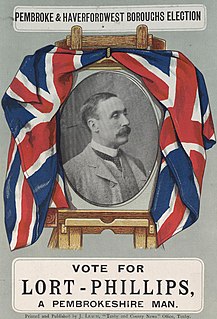 W
WGeorge Lort-Phillips was Conservative member of parliament for Pembrokeshire in Wales from 1861 until his death.
 W
WPratap Singh I, popularly known as Maharana Pratap, was a king of Mewar, a region in north-western India in the present-day state of Rajasthan. He was titled as "Mewari Rana" and was notable for his military resistance against the expansionism of the Mughal Empire and was known for his participation in the Battle of Haldighati and Battle of Dewair.
 W
WRazadarit, was king of Hanthawaddy Pegu from 1384 to 1421. He successfully unified his Mon-speaking kingdom, and fended off major assaults by the Burmese-speaking Ava Kingdom (Inwa) in the Forty Years' War. The king also instituted an administrative system that left his successors with a far more integrated kingdom. He is one of the most famous kings in Burmese history.
 W
WLucas Samalenge was a Congolese and Katangese politician who was Katanga's Secretary of State of Information.
 W
WRichardson A. Scurry was a Texas politician and a Democratic member of the United States House of Representatives.
 W
WFrançois Sevez was a French general during World War II. Sevez was present at the German surrender in Reims, and signed the German Instrument of Surrender as the official witness.
 W
WJohn Hanning Speke was an English explorer and officer in the British Indian Army who made three exploratory expeditions to Africa. He is most associated with the search for the source of the Nile and was the first European to reach Lake Victoria. Speke is also known for propounding the Hamitic hypothesis in 1863, in which he supposed that the Tutsi ethnic group were descendants of the biblical figure Ham, and had lighter skin and more Hamitic features than the Bantu Hutu over whom they ruled. The racial hypothesis he proposed contributed to the conditions for the 1994 Rwandan genocide, in which 500,000 to 600,000 Tutsi were slaughtered.
 W
WEdward James "Doc" Stewart was an American football, basketball, and baseball player, coach, and college athletics administrator. He was also the founder, and player-coach of the Massillon Tigers professional football team.
 W
WWilliam Cornelius Sullivan was a Federal Bureau of Investigation official who directed the agency's domestic intelligence operations from 1961 to 1971. Sullivan was forced out at the FBI at the end of September 1971 due to disagreements with FBI director J. Edgar Hoover. The following year, Sullivan was appointed as the head of the Justice Department's new Office of National Narcotics Intelligence, which he led from June 1972 to July 1973. Sullivan died in a hunting accident in 1977. His memoir of his thirty-year career in the FBI, written with journalist Bill Brown, was published posthumously by commercial publisher W. W. Norton & Company in 1979.
 W
WValdemar the Young was King of Denmark from 1218 until his death.
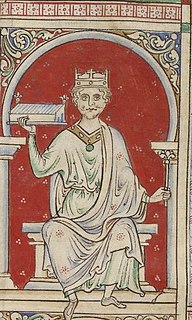 W
WWilliam II, the third son of William the Conqueror, was King of England from 26 September 1087 until his death in 1100, with powers over Normandy, and influence in Scotland. He was less successful in extending control into Wales. William is commonly referred to as William Rufus, perhaps because of his ruddy appearance or, more likely, due to having red hair as a child that grew out in later life.
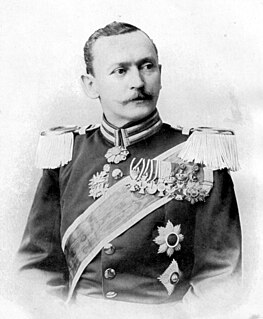 W
WHermann Wilhelm Leopold Ludwig Wissmann, after 1890 Hermann von Wissmann, was a German explorer and administrator in Africa.
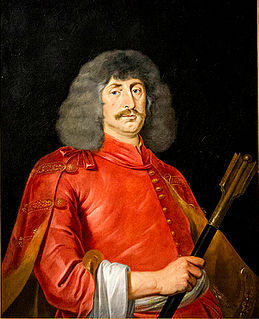 W
WMiklós VII Zrínyi or Nikola VII Zrinski was a Croatian and Hungarian military leader, statesman and poet. He was a member of the House of Zrinski, a Croatian-Hungarian noble family. He is the author of the first epic poem, The Peril of Sziget, in Hungarian literature.